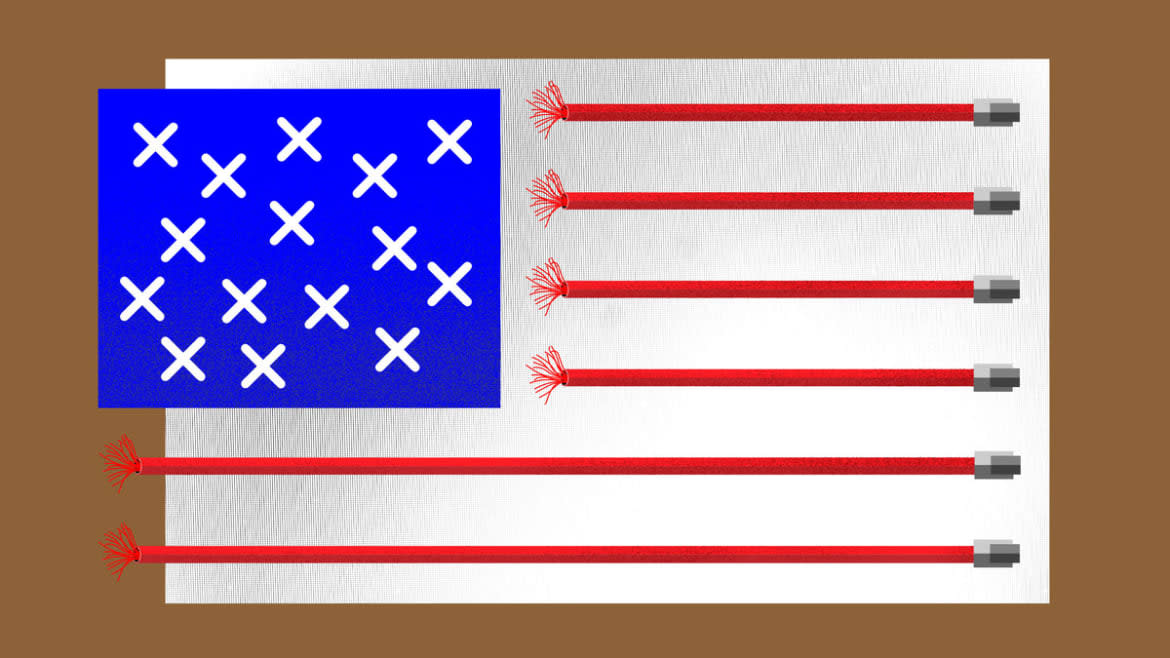The Dark Era at Stake if Congress Allows Internet Censorship

The new Congress inherits a nation divided. Americans are insecure in their status and uncertain of their futures. And as an equally divided Congress searches for possible common ground, bipartisan proposals to punish online platforms for the nation’s ills appear ascendant. But however else we overcome our divisions, we must not heed calls to ban our way out by censoring speech online.
Figuring out how a diverse nation of hundreds of millions of people can define and pursue common goals together is difficult work. Perhaps because it is so difficult, proposals abound to shortcut the process.
One fix popular with both parties pins blame on the media and the ways Americans have come to use to engage with one another.
We would not be so bitterly divided, the argument goes, were it not for the way social media algorithms amplify divisive content, and suppress particular political viewpoints. It is also said that our kids would not suffer the mental health challenges that afflict them were it not for the way social media promotes unrealistic and harmful lifestyles. The solution, we’re told, is to have governments dictate the kinds of speech we allow to circulate.
Current proposals tend to come in one of two varieties. States like Texas and Florida have enacted laws that would force private publishers and popular online platforms to amplify the voices of preferred partisans, and suppress the dissemination of disfavored ideas by regulating school curricula and banning books from public libraries.
States like California, meanwhile, have enacted and proposed bipartisan laws empowering censors to punish online publishers for disseminating ideas the state deems too dangerous, either for public discourse or for an audience’s well-being.
Between them, there is the dangerous prospect of an agreement to curtail online speech at the federal level—including by eliminating existing statutory protections for internet speech, as well as by establishing new restrictions.
How Right-wing ‘Free Speech’ Sites Censor Legal Expression
No doubt, some of the concerns underlying these proposals may be valid. And many of these proposals are well-intended. But we cannot censor our way out of our struggle to live together as one democratic people or we will cease to be the democratic people we have been.
For one thing, the Constitution does not allow it. As one federal appellate court already explained in consideration of a Florida law that would have compelled social media platforms to host speech from politicians and groups they wished to exclude, the decisions social media platforms make about the types of content to include, exclude, restrict, or amplify are “closely analogous to the editorial judgments” made by traditional media outlets like newspapers and fully protected by the First Amendment.
The federal law enacted to implement and safeguard First Amendment values online has similarly been applied to protect the decisions a social media platform makes as a publisher to promote or amplify even dangerous ideas that can (however indirectly) lead audiences to commit self-harm or violence.
The Supreme Court is nevertheless poised to reconsider both of these protections in two cases next term. Gonzalez v. Google LLC asks whether the federal law implementing the First Amendment’s protections online should protect YouTube’s content recommendation engine even when it suggests ISIS videos to viewers who then go out and murder Americans in acts of terrorism.
Moody v. NetChoice LLC, which the Supreme Court is expected to take up, asks whether Florida can compel private internet platforms to publish speech they find abhorrent. Under existing law, the answer in both cases would be clear. But the national mood has shifted, regulators have become emboldened, and an embattled nation grasps for easy answers.
However, easy answers do not solve hard problems. Giving censors the power to ban or compel speech online—even if the Supreme Court allows it—will not let us understand each other better, grant us empathy, or make us better parents or siblings or children or friends.
Only self-regulation and some summoning to national purpose can do that. And far from bringing about the unity and fidelity the country so desperately needs, this sort of censorship would erode the liberties and way of governing ourselves that provides us with national purpose in the first place.
Our struggle to define ourselves, realize our principles, and live together as Americans has never been easy. But that is the task of the democracy our Constitution gives us—to show that a diverse and free people can live together and take care of one another without sacrificing either freedom or diversity.
Easy answers purporting to do one and not the other betray the project of our republic, violate its laws, and threaten the foundation of who we are as a people.
Get the Daily Beast's biggest scoops and scandals delivered right to your inbox. Sign up now.
Stay informed and gain unlimited access to the Daily Beast's unmatched reporting. Subscribe now.

